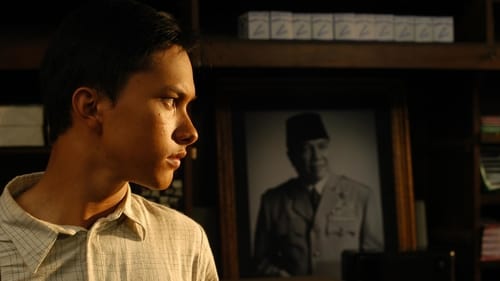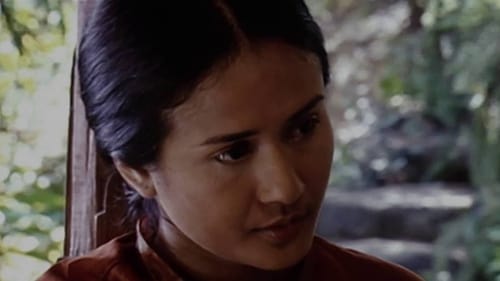
Art Direction
Cairo, Baby Blue, Arimbi, and Farlyna are a soulmates. They think they have a connection each other and it's reveals from when they are have a boyfriend. Unknowingly by them, the quartet share their love to one person named Bumi, a man who can adapted of their different personality. He recently shares his love to only one woman with tragic past and trauma named Cempaka. Cempaka always been a weirs-act or something like that. But, when all of women pregnant, the problems shown and will end in a disturbing answer.

Costume Designer
Indonesian activist Soe Hok Gie experiences a political awakening during the tumultuous regimes of Soeharto and Soekarno.

Art Direction
Indonesian activist Soe Hok Gie experiences a political awakening during the tumultuous regimes of Soeharto and Soekarno.

Art Direction
A woman with a dark past dedicates herself to taking care of multi-handicapped children. When a young musician comes into her life, she is forced to face her history, or it will destroy her future.

Construction Coordinator
Ca Bau Kan relates the saga of Giok Lan, an Indonesian woman living in the Netherlands, who returns to Indonesia in search of her roots. Her mother, Tinung, a village woman, was known as ‘Ca Bau Kan’ – a word used to describe a courtesan who entertained Chinese men in colonial Indonesia. Giok Lan’s father, Tan Peng Liang (Ferry Salim), was an immigrant Chinese merchant who had a very successful tobacco business in Batavia. She becomes deeply involved with him, and causes a scandal when he has Tinung move in with his family. The film is set between 1930 and 1950, and unfolds the story of Giok Lan and her parents: Tinung and Tan Peng Liang where Tan is eventually ruined when his rivals begin to attack him. This is owing to the significant contrast in socio-economic and cultural background, as the love of these last two characters face a series of difficulties.

Art Direction
Ca Bau Kan relates the saga of Giok Lan, an Indonesian woman living in the Netherlands, who returns to Indonesia in search of her roots. Her mother, Tinung, a village woman, was known as ‘Ca Bau Kan’ – a word used to describe a courtesan who entertained Chinese men in colonial Indonesia. Giok Lan’s father, Tan Peng Liang (Ferry Salim), was an immigrant Chinese merchant who had a very successful tobacco business in Batavia. She becomes deeply involved with him, and causes a scandal when he has Tinung move in with his family. The film is set between 1930 and 1950, and unfolds the story of Giok Lan and her parents: Tinung and Tan Peng Liang where Tan is eventually ruined when his rivals begin to attack him. This is owing to the significant contrast in socio-economic and cultural background, as the love of these last two characters face a series of difficulties.





